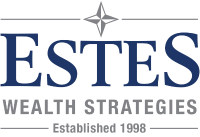Year-End Strategy #1: Should I Consider Converting My Pre-Tax IRA to a Roth IRA?
It’s typical at retirement for clients to have amassed a sizeable savings in pre-tax retirement accounts. But unfortunately, now the tax bill comes due on those pre-tax funds as you start to take distributions, whether elective or required. Doing a Roth IRA Conversion is an increasingly popular strategy with some investors for reducing their tax obligation and potentially that of future heirs.
If the following questions describe your situation, you may want to consider a Roth IRA Conversion:
Are you or your spouse retired, or are you considering retiring soon?
Do you feel your taxes may increase in the future?
Do you have excess pre-tax IRA savings that you may not need in the future?
Does passing on a tax-free legacy to the people and organizations you care about appeal to you?
(If you can’t answer “Yes” to these questions, you may have a parent or know someone else who can—and we’d be happy to offer a consultation.)
As an example, some retirees are opting to convert all of part of their pre-tax IRAs to Roth IRAs during the years immediately after retirement when they have more than enough resources to live on and find themselves in a much lower tax bracket than in their working days—and possibly a lower bracket than in the future when social security and RMDs increase taxable income.
There are also other circumstances for non-retirees when a Roth Conversion might make sense. For example, a younger person would like to do a 401(k) rollover and feels that their tax bracket is lower now than it will be in the future. Converting at least a portion of the rollover to a Roth IRA may be a good idea for the long-term, tax-free accumulation of earnings.
The conversion process does mean paying taxes now on the pre-tax IRA funds—but at what may be a lower tax rate now than in the future (creating a lower lifetime tax liability). Once converted, there are no taxes on future Roth IRA distributions, nor are there required minimum distributions (RMDs). The converted assets can grow tax deferred throughout the remainder of your lifetime, and you can still access the funds tax-free.
But, in my opinion, the greatest benefit of doing a Roth IRA conversion is actually for the next generation. If you do not need all of your IRA savings during your lifetime, converting to a Roth IRA will allow the tax-free transfer of funds to future beneficiaries without the tax burden of the new 10-year distribution rule for inherited pre-tax IRAs.
This is a big deal, and here’s why … Before 2020, when a beneficiary inherited a pre-tax IRA, they had to take taxable distributions from that IRA over their lifetime. This allowed ongoing, tax-deferred growth in the IRA with just small taxable distributions to the beneficiary. The 2019 SECURE Act now requires the beneficiary to liquidate and pay taxes on the inherited funds within 10 years. This compressed distribution delivers a big tax bill up front, possibly when heirs are in their highest earning years, and can potentially push heirs into higher tax brackets.
By comparison, when someone inherits a Roth IRA, they can allow the funds to continue to grow for 10 years—and then withdraw at the end of 10 years completely tax free. This represents a potentially significant tax saving and value opportunity across generations.
Typically, a partial Roth IRA conversion strategy is implemented over multiple years. It’s advisable to analyze the impact of the amount converted each year. For example, you may want to select an amount that helps you avoid bumping your adjusted gross income (AGI) to a higher tax bracket or potentially increasing social security taxes and Medicare premiums. We can help advise on the conversion amount and timing, based on your tax and income profile. We can also work with your tax accountant to communicate the recommended strategy.
If you have any questions about the Roth IRA Conversion strategy, or would be interested in having us evaluate your pre-tax IRA and tax situation to determine if a conversion may be right for you, please reach out—we’d be happy to discuss with you.
Any opinions in this newsletter are those of Estes Wealth Strategies and John Estes and not necessarily those of RJFS or Raymond James. Expressions of opinion are as of this date and are subject to change without notice. The information presented herein has been obtained from sources considered to be reliable, but we do not guarantee that it is accurate or complete. It is not a statement of all available data necessary for making a recommendation, nor does it constitute a recommendation.
While we are familiar with the tax provisions of the issues presented herein, as Financial Advisors of RJFS, we are not qualified to render advice on tax or legal matters. You should discuss tax or legal matters with the appropriate professional. Unless certain criteria are met, Roth IRA owners must be 59½ or older and have held the IRA for five years before tax-free withdrawals are permitted. Additionally, each converted amount may be subject to its own five-year holding period. Converting a traditional IRA into a Roth IRA has tax implications. Investors should consult a tax advisor before deciding to do a conversion.



